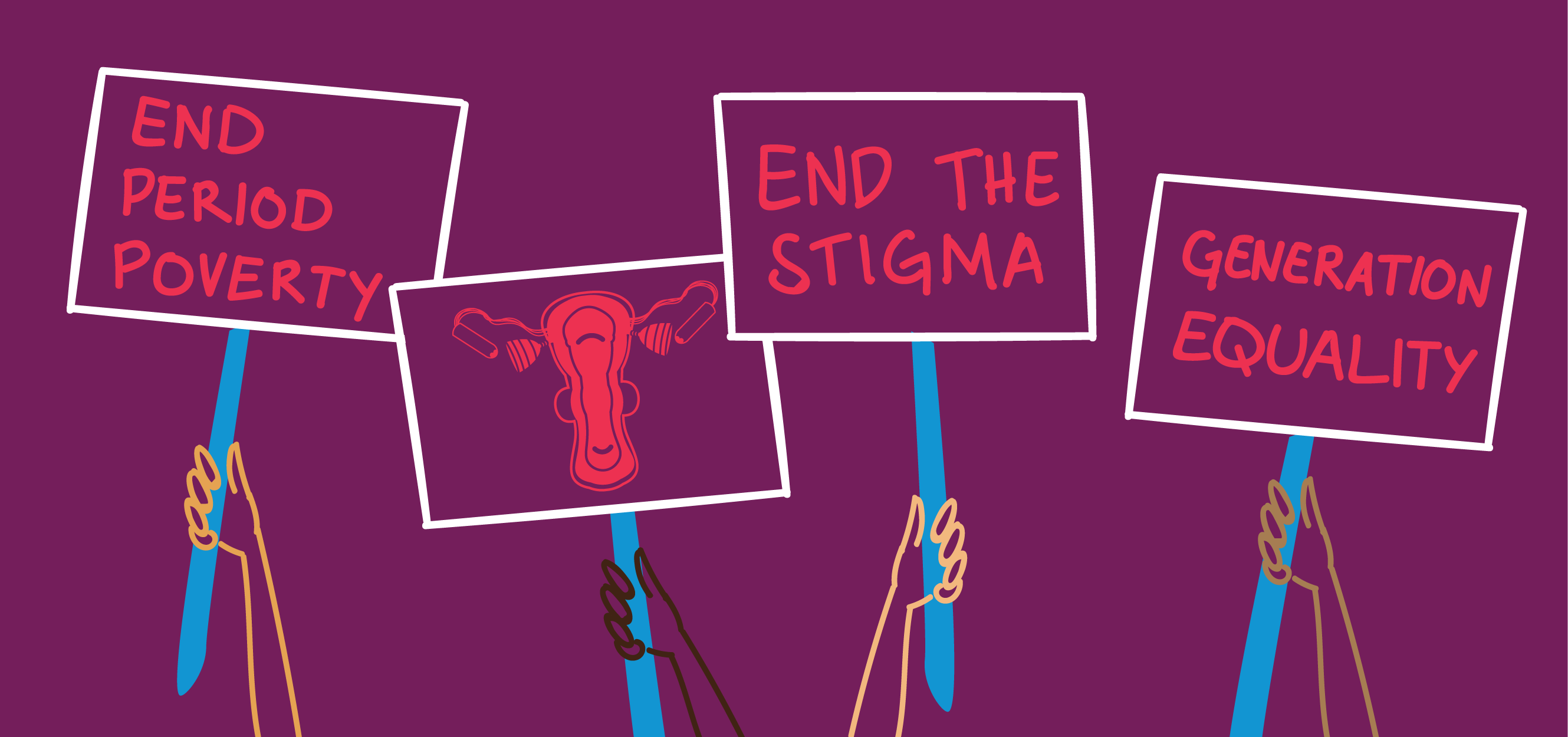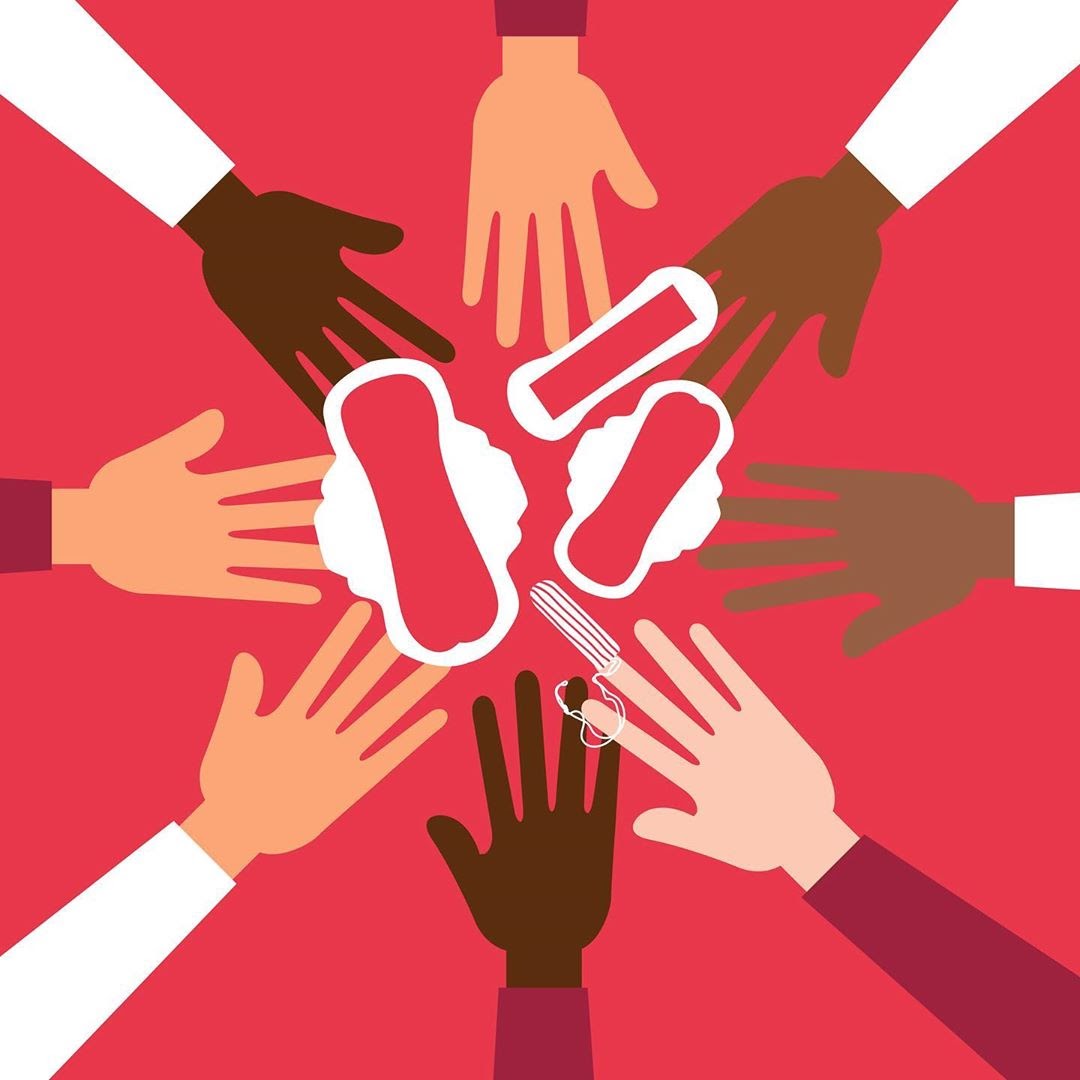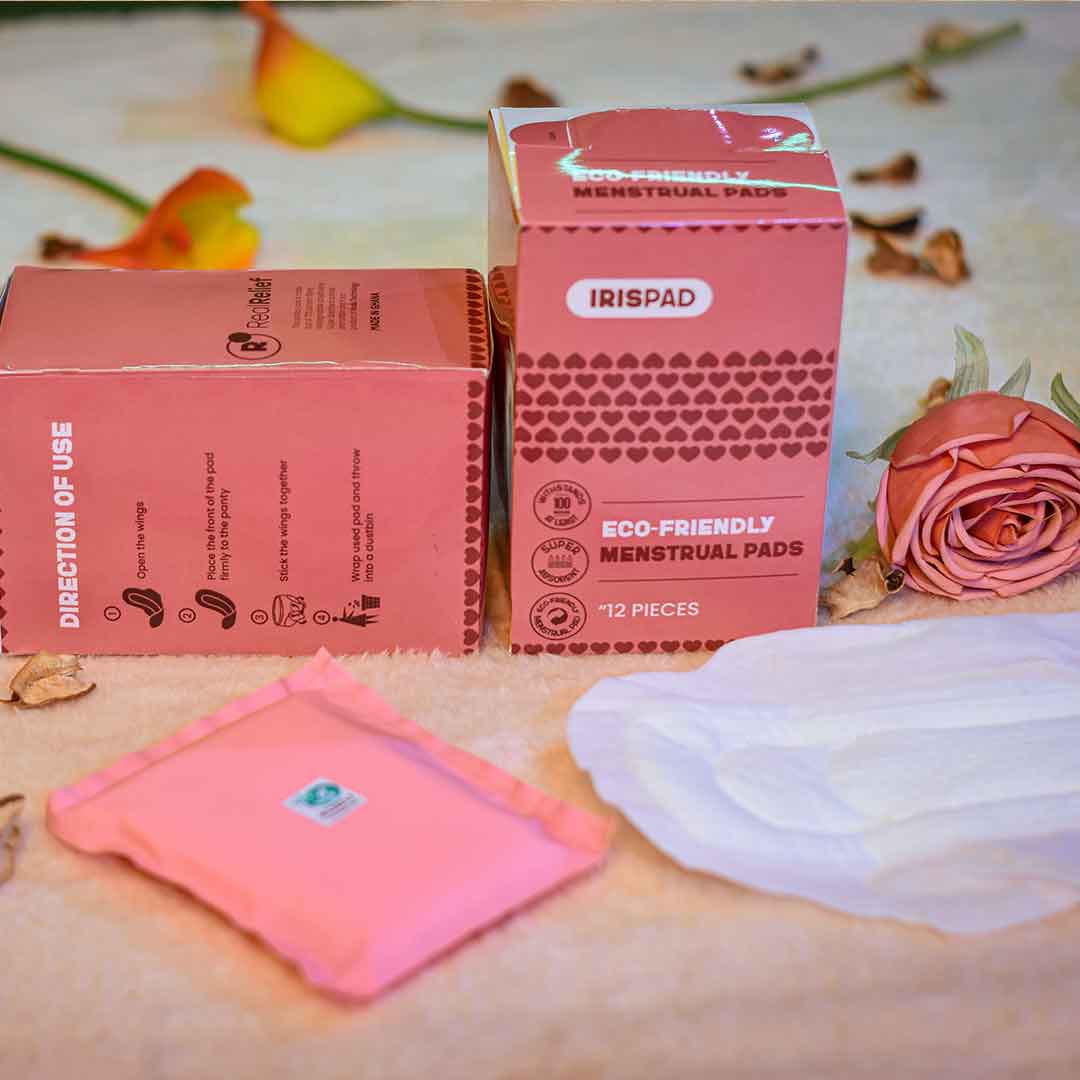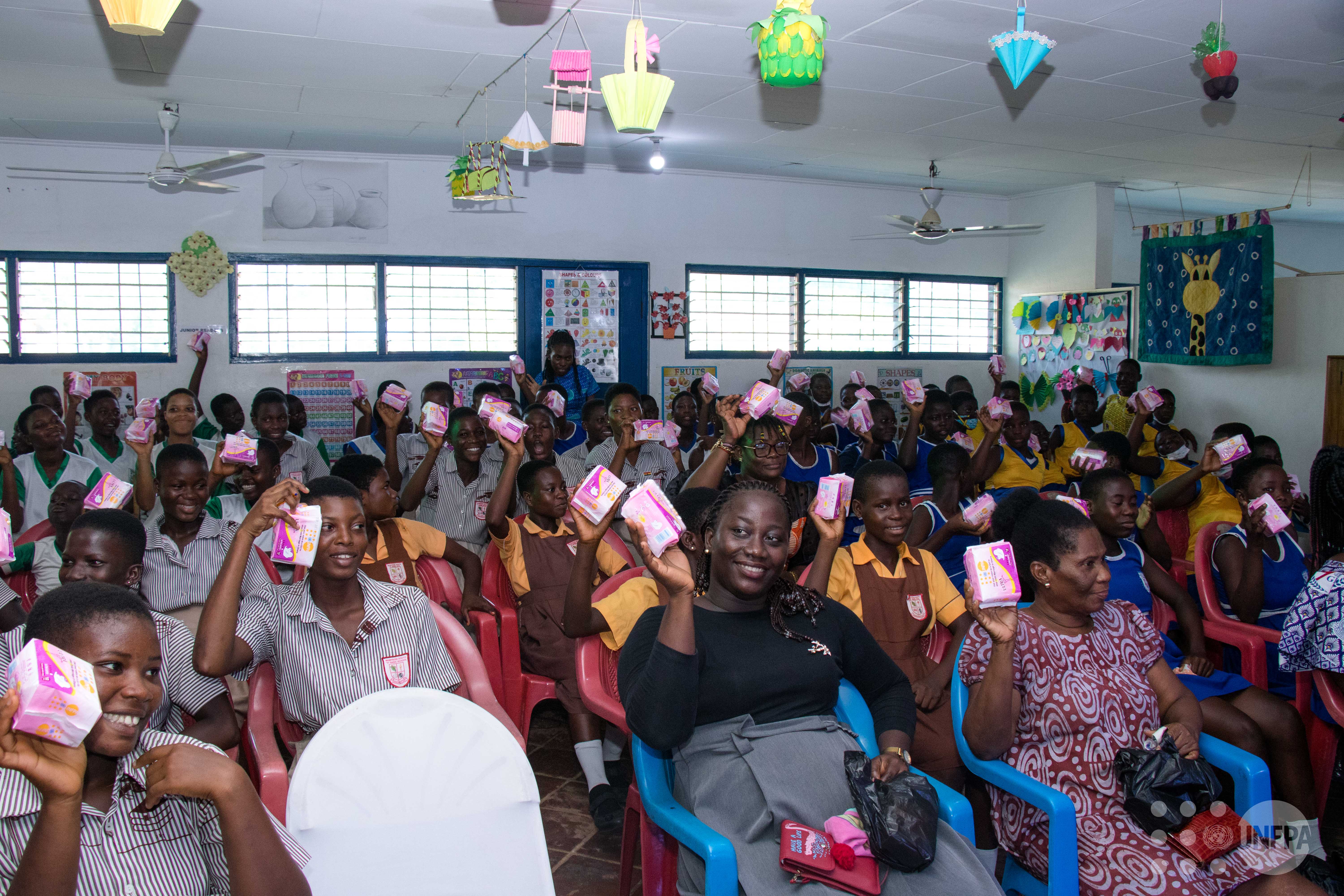Expensive Hygiene: Ghana’s luxury tax on period poverty
ACCRA, GHANA – Period poverty in Ghana is a menace. The ‘luxury’ tax on importation of sanitary pads adds to the problem. The West African country needs a policy change, according to experts who are on a mission to eradicate the problem.
———–
In the week leading to the 2023 Menstrual Hygiene Day, Ghana’s social media had been set ablaze by a conversation around an important topic. An activist during a radio interview had talked about an experience that sparked a debate with divided opinions and doubts. It was a bizarre experience. Etornam Sey mentioned that in some of her trips around Ghana, she had been to places where poverty was so intense that young girls used clay as a substitute for sanitary pads. This claim had been branded a stereotype by many Ghanaians.
However, the sheer audacity to boldly propagate such a message on national radio and hope for its acceptance by many paints a damning picture of what period poverty is in Ghana. It is that bad.
Although young girls using clay as a substitute for sanitary pads has not been confirmed, the effects of period poverty still cut deep into the welfare of young girls and women across the country.
During one of Hajia Alima Sagito-Saeed’s community sessions with Savannah Women Integrated Development Agency (SWIDA) around menstrual hygiene, a young lady was visibly emotional and overwhelmed throughout the gathering. When she was handed some sanitary pads by the organisation, she could not hold back the tears anymore. She had a story to share.
The young lady had relocated to the Northern Region, a return from the capital Accra because of the COVID-19 pandemic where she was a head potter (Kayayei). She was pregnant – a baby she decided to keep after a failed abortion.
Her conception story highlights one of the many challenges of period poverty. Needing about GHc5 to GHc7 to buy a sanitary pad, the now father of her child asked for sex in return before deciding to fund the purchase. The result is pregnancy. She wasn’t ready so tried to abort it. A recall of her story where sexual exploitation was the end of her inability to afford sanitary pads could only draw tears down her cheeks.
Another is of a student Hajia Alima and her team are trying to get back into school. This young girl had her period in school and could not properly manage herself in class leading to her being stained. Her colleagues laughed at her. For this young girl, that was the end of school as she was not ready to face the supposed shame that came with her menstruation back in school. These period poverty stories go beyond regional borders in Ghana with its complementing health risks, putting young girls out of school and leaving them in financial distress that leads to in some cases teenage and unwanted pregnancies and the rise of sexually transmitted diseases (STIs).
According to a United Nations Educational, Scientific and Cultural Organization (UNESCO) report, one in 10 girls in Sub-Saharan Africa misses school during her period, an estimated 20% out of school in the school year. Ghana’s situation is made worse due to various factors that may be social, economic, technological, cultural or national policies. One such issue is the taxes on sanitary pads, a regional policy with immense effect on what is best described as a natural process that plays a vital role in female reproduction – menstruation.
Scope of the problem

Around the year 2020 when COVID-19 hit, sanitary pads in Ghana cost between GHc5 to GHc7. In July 2023, the price has shot up about 300% selling upwards of GHc15.
For many of the vulnerable in society dealing with period poverty, these prices are not the only cause of concern.
The lack of sexual education in our social setting has seen a lot of girls grow up with very little information. Technology in the modern age could fix these blind spots. However, economic strength around securing technological devices to have access to these educational materials on managing menstruation hinders the progress of closing that information gap. Information is very important and is linked to technology.
Hajia Alima Sagito-Saeed who is the Executive Director at SWIDA highlights how society could support the management of this natural phenomenon.
“When it comes to the young girl, they would have to menstruate because, without menstruation, there will be no reproduction,” Hajia Alima says.
“It is the responsibility of society to realise that and give young girls the needed support. Economic situations have to deal with resources. There are a lot of girls located within rural settings – raising money to buy pads is an issue. It has implications on how they are growing, how they are managing it and has implications on education. They go together, especially those that are in school,” she adds.
Aside from the economic reasons that sometimes discomforts young students who stay out of school because of menstruation, policies in most schools in Ghana and the availability of sanitary facilities are discouraging factors.
Despite the help of some NGOs in trying to manage menstruation in a way that still keeps young students in school, scenarios on the ground have been abysmal at best.
There is the lack of changing room facilities, the lack of washrooms and sometimes the nonavailability of water which Hajia Alima blames on society not putting a premium on making sure the girl child is not punished by a natural occurrence they have no control over.
“In a lot of schools, changing rooms for girls is an issue,” the Executive Director at SWIDA explains.
“Sanitary facilities in terms of washrooms and availability of water is an issue. These are policy decisions that need to be made. If society puts a premium on making sure that the girl child will grow to become our future leader, and are taken care of, they will seek that level of accountability and insist that every school infrastructure comes along with that.”
A luxury tax on poverty

According to the Ghana Revenue Authority, Ghana operates a five-band tax rate system under the ECOWAS Common External Tariffs. The tax rates are as follows:
- Zero (0) Rated – Essential social goods
- 5% – Basic necessities, basic raw materials, capital goods, specific inputs
- 10% – Inputs and intermediary products (semi-finished goods)
- 20% – Finished goods (final consumer goods)
- 35% – Specific goods for economic development
These taxes are not just restricted to import duties. They have effects on Value Added Tax, the National Health Insurance Levy, the Ghana Education Trust fund and a host of other levies.
The Harmonized System Code popularly known as HS Code details the tax band for each product imported into the country as a product classification system. To import goods to Ghana, one has to know the HS Code of the product which is critical in assessing the duties and taxes on the particular product.
HS Code for sanitary towels (pads) and tampons including similar articles attract a 20% import duty with an additional 12.5% Import VAT and a 2.5% NHIL Rate.
These tax components have detrimental effects on the final price of sanitary pads for the average Ghanaian. In loose terms, 20% or more for the tax rate system is tagged as luxury and that has sparked various conversations around why managing a natural occurrence such as menstruation should be branded luxury.
Condom, which is listed in the HS Code as a ‘sheath contraceptive’ has a 0% import duty, 0% Import VAT and 0% NHIL Rate as a zero-rated essential goods.
Background to this could be attributed to the affordability of condoms to curb the spread of Sexually Transmitted Infections especially HIV and AIDS which at some point posed a serious threat to Ghana’s health system and Africa as a whole. It was essential to prioritise the affordability of sheath contraceptives. And Hajia Alima believes good government policies could solve the tax on sanitary pad issues.
“If the government does not see menstrual management as an issue and prioritise it, it affects the kind of policies around it,” Haija Alima says.
“That is why we have issues around the taxes on sanitary pads and the increase in prices as it’s treated as a luxury. I just don’t understand how menstruation which is a natural thing that has produced the children that we have and giving us human resources becomes a luxury issue.”
The removal of import taxes, however, is not as straightforward as it seems with the different power dynamics in trade.
In June 2023, the Association of Ghana Industries (AGI) warned the government of Ghana against the removal of taxes on imported sanitary pads highlighting the negative consequences it could impose on local manufacturers. In a statement released by the AGI, the association said the call for the removal of import duties on imported sanitary pads was misplaced, stating it could pose a huge challenge to local producers with the influx of cheap and sub-standard imports.
Ghana Union of Traders Association (GUTA) in a quick response told the Ghana News Agency through their president, Dr Joseph Obeng said that it was “morally right to remove taxes on sanitary pads” and that they “urge the government in doing that urgently.”
“These are power dynamics at play at the expense of the girl child,” Hajia Alima Sagito-Saeed says.
“Nobody cares. As the girl child is not able to manage herself, the discomfort and the lack of confidence that hits the girl child, the inability of the girl child to continue schooling and grow to become a responsible woman, nobody is weighing that. Instead, we are playing power dynamics around the welfare of the girl child,” she adds.

“Scraping off taxes on goods and support for locally made brands. This will help them scale up and produce more,” is the double-edged solution to the problem from Dr Iddi Mohammed Faried.
Dr Iddi Mohammed Faried of Kodu Technology is on a mission dedicated to eradicating period poverty in rural communities through the use of affordable, biodegradable and eco-friendly sanitary pads.
The company uses banana and plantain fibres as agricultural waste to make affordable sanitary pads for young women. As a professional who is finding solutions to Ghana’s period poverty problems, Dr Iddi Mohammed Faried has analysed the problem to its core.
“The high cost of goods makes the sanitary materials expensive and this drives period poverty. So many young ladies in rural areas stay at home instead of being at school anytime they have periods. This can affect their studies and can also lead to an inferiority complex,” he says.

In an interview with the United Nations Population Fund (UNFPA), Ghana, the organisation noted that despite school attendance in Ghana being relatively high, according to the World Bank – 84% of girls in Ghana attending primary school and 71% attending secondary school – period poverty continues to be a barrier to education for some girls.
The high cost of menstrual products, inadequate menstrual hygiene education and menstrual stigma based on wrong perceptions which result in girls being shamed or ridiculed for their periods are factors that contribute to period poverty according to UNFPA. These factors affirm some of the stories in Hajia Alima’s experiences.
From educating girls and women about menstruation, proving access to menstrual products, and challenging menstrual stigma to advocating for policy change, UNFPA as a leading advocate for the rights of women and girls has put in these measures to curb the menace of period poverty in Ghana.
Just as these organisations and NGOs are doing their best around the topic of period poverty, the ultimate responsibility lies on the government as a major stakeholder in pushing for change for the girl child and women in general. Poverty cannot be taxed as a luxury. The negative effects of a natural body occurrence cannot be complicated with huge taxes. From all involved, the consensus is that Ghana needs to take a critical look at period poverty – and that’s on period!
Read Full Story
Advertise Here contact ads[@]ghheadlines.com




















Discussion about this post